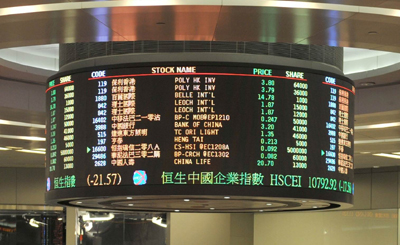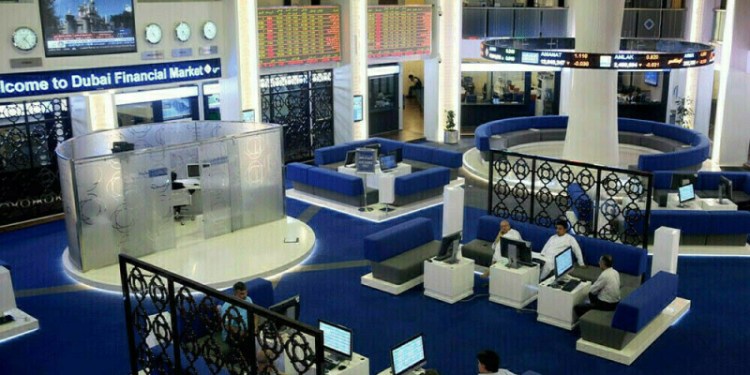Tuesday, 11 August 2015 15:19
 HONG KONG: Hong Kong and Shanghai stocks ended flat on Tuesday, as investors mulled the impact of a sharp devaluation of the yuan announced by China’s central bank, dealers said.
HONG KONG: Hong Kong and Shanghai stocks ended flat on Tuesday, as investors mulled the impact of a sharp devaluation of the yuan announced by China’s central bank, dealers said.
The benchmark Hang Seng Index edged down 22.91 points to end the day at 24,498.21 on turnover of HK$ 96.1 billion (US$ 12.4 billion), after rising as much as 1.6 percent.
China on Tuesday announced a sharply lower daily reference rate for the yuan against the US dollar, saying it was part of moves to make its exchange rate regime more market-oriented.
The surprise 1.86 percent cut marked the biggest drop since China reformed its currency system in 2005 by unpegging the yuan — also known as the renminbi (RMB) — from the greenback.
“Policy makers and the central bank are still very concerned about the overall economic-growth momentum,” Qian Wang, Hong Kong-based senior economist for Asia Pacific at Vanguard Group, told Bloomberg News.
“China has suffered because of the strengthening of the currency.”
A yuan devaluation could help Chinese exporters and boost the overall economy, but analysts cautioned the move could make yuan-denominated assets like stocks less attractive and cause capital outflows from the country.
The move sent Hong Kong and mainland shares on a rollercoaster ride, swinging between losses and gains as investors mulled the long-term impact of the decision for Asia’s largest economy.
The benchmark Shanghai Composite Index also settled largely flat, edging down 0.51 points to close at 3,927.91 on turnover of 712.3 billion yuan ($ 114.3 billion).
The Shenzhen Composite Index, which tracks stocks on China’s second exchange, added 0.41 percent, or 9.43 points, to 2,284.27 on turnover of 623.1 billion yuan.
“There were big fluctuations in (domestic) A-shares after the announcement, as investors are not sure whether it’s a one-off measure or if there will be continuing depreciation of the yuan,” Shen Zhengyang, an analyst from Northeast Securities, told AFP.
“The devaluation could lead to an outflow of funds while the benefit to corporate profits is small, so the overall effect on the stock market is neutral to weak.”
Aviation shares were hit hard, on fears a weaker yuan could hurt airlines’ profits and make servicing their dollar-denominated debt more expensive.
Shanghai Juneyao Airlines dropped 2.47 percent to 61.67 yuan and Hainan Airlines lost 3.52 percent to 5.48 yuan.
In Hong Kong, China Southern Airlines led the slump to end down 18 percent at HK$ 6.76 while China Eastern Airlines lost 16.5 percent to close at HK$ 5.45, and Air China sank 13 percent to HK$ 7.40.
Insurers also fell in Shanghai. Ping An Insurance slid 0.63 percent to 4.87 yuan and China Pacific Insurance sank 1.03 percent to 25.91 yuan.
Other companies with exposure to mainland China listed in Hong Kong advanced, however. CNOOC added 3.9 percent to HK$ 9.91 and China Overseas Land gained 3.1 percent to HK$ 25.10.



























